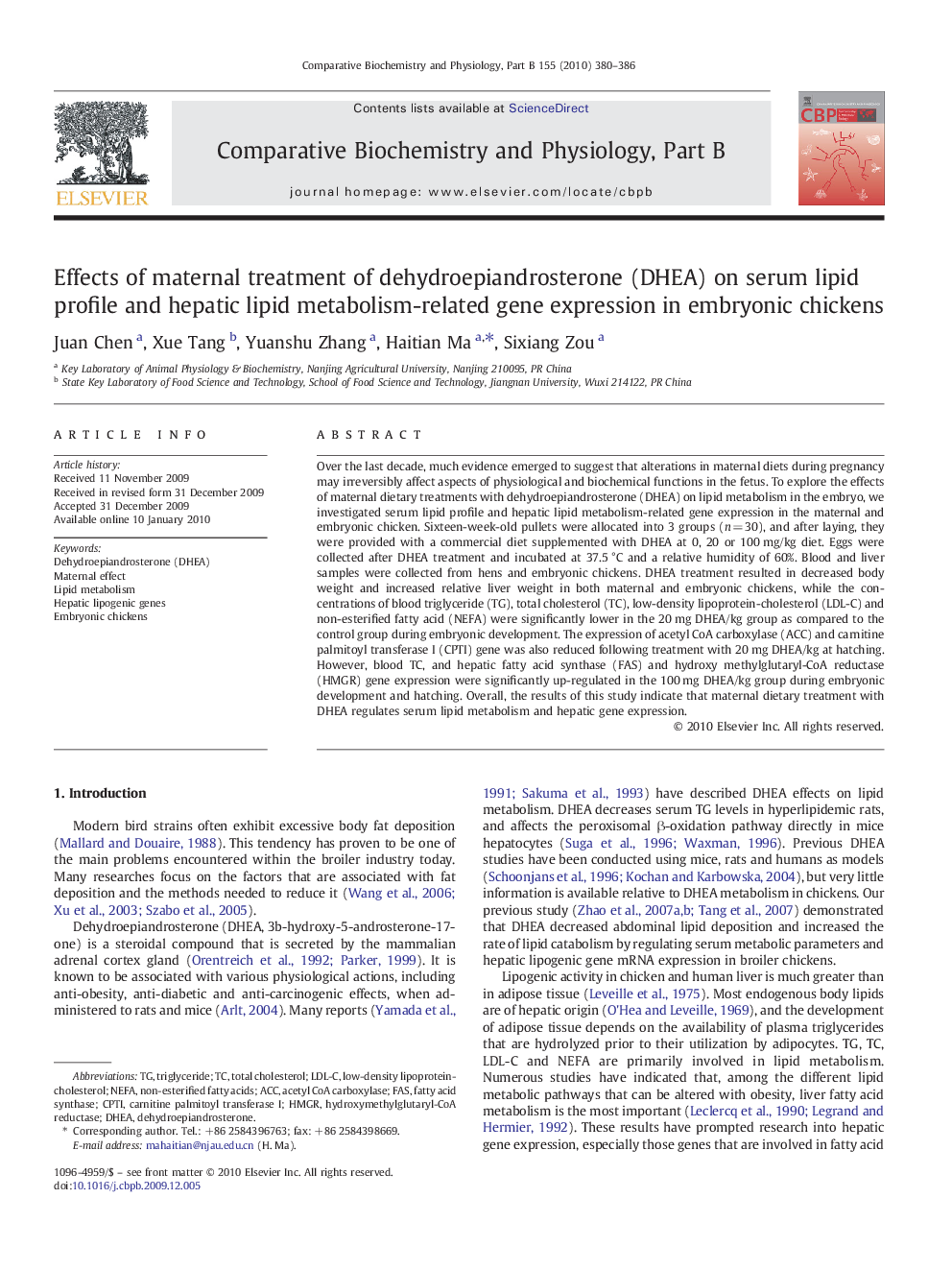| Article ID | Journal | Published Year | Pages | File Type |
|---|---|---|---|---|
| 1975780 | Comparative Biochemistry and Physiology Part B: Biochemistry and Molecular Biology | 2010 | 7 Pages |
Over the last decade, much evidence emerged to suggest that alterations in maternal diets during pregnancy may irreversibly affect aspects of physiological and biochemical functions in the fetus. To explore the effects of maternal dietary treatments with dehydroepiandrosterone (DHEA) on lipid metabolism in the embryo, we investigated serum lipid profile and hepatic lipid metabolism-related gene expression in the maternal and embryonic chicken. Sixteen-week-old pullets were allocated into 3 groups (n = 30), and after laying, they were provided with a commercial diet supplemented with DHEA at 0, 20 or 100 mg/kg diet. Eggs were collected after DHEA treatment and incubated at 37.5 °C and a relative humidity of 60%. Blood and liver samples were collected from hens and embryonic chickens. DHEA treatment resulted in decreased body weight and increased relative liver weight in both maternal and embryonic chickens, while the concentrations of blood triglyceride (TG), total cholesterol (TC), low-density lipoprotein-cholesterol (LDL-C) and non-esterified fatty acid (NEFA) were significantly lower in the 20 mg DHEA/kg group as compared to the control group during embryonic development. The expression of acetyl CoA carboxylase (ACC) and carnitine palmitoyl transferase I (CPTI) gene was also reduced following treatment with 20 mg DHEA/kg at hatching. However, blood TC, and hepatic fatty acid synthase (FAS) and hydroxy methylglutaryl-CoA reductase (HMGR) gene expression were significantly up-regulated in the 100 mg DHEA/kg group during embryonic development and hatching. Overall, the results of this study indicate that maternal dietary treatment with DHEA regulates serum lipid metabolism and hepatic gene expression.
